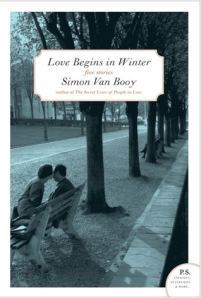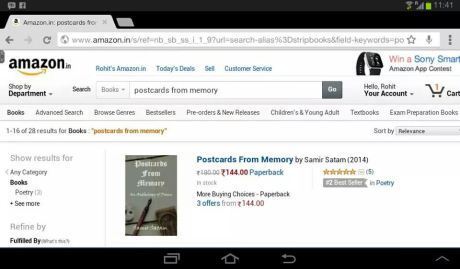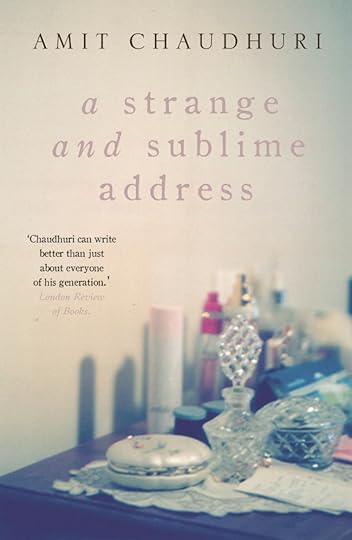Samir Satam's Blog, page 3
March 8, 2015
Rape and Murder
Rape and Murder are the same thing. In murder, your life is snatched from you against your wish. In rape, you are used as an object for sex against your wish. You don’t necessarily die in case of rape but on a psychological level, something does die inside you. What’s worse is the memory of the instance when you were being used like a lifeless object, the humiliation, the impotent anger, the pain, crushed self esteem, the helplessness and worst is the memory of having a climatic discharge in some cases where the body and mind do not agree with each other – the mind hasn’t yet recovered from the shock of attack and failed resistance but the body mechanically goes through its own biological functions… In that instance, you are as good as a dead body since your mind is not with your body.
Hence I believe, rape is a form of murder on a deeper level and hence the culprit should be sentenced to death at least in cases of rape where there are no doubts about the innocence of the accused. In case of murder there maybe variations on grounds of motive but rape has no justifiable motive no matter which way you look at it…
Therefore a sadistic death for the rapists is what our law needs to implement. Now the question arises, what will happen to the wrongly framed victims of rape cases. If proven so on medical grounds, the person who misuses the law to frame someone in a rape case should be charged with ‘Attempt to murder’. That will help lower the number of fake rape cases.
In our times, this is just what India needs. I hope we have some other ways of eliminating rapes in our society. If not, it’s high time such stringent laws are passed.

Interview…
An Interview conducted by ‘Writer’s Forum’ in reference to my book ‘Postcards from Memory':
http://writersforumuk.blogspot.in/2015/01/interview-with-samir-satam.html

December 22, 2014
Evil
This is written in Quran,
That is written in Geeta,
In the name of God,
They have interpreted it well,
Follow, or hell awaits
Long beards, white robes,
Bald heads, saffron robes,
Trying, Manipulating,
To control lengths of skirts
To dictate what girls wear
Love! Before marriage!
Intercaste! How dare she?
Ruined our family name!
Kill both, Save our honour
What all these youngsters make us do!
Women are different,
Vulnerable, Weaker,
Control them, Hide them
Marry them off,
They need to be saved
A voice arises,
“The one capable of giving birth
Can she be really weak?”
They crush it though
You youngsters and your questions!
She was raped! What was she wearing?
Spaghetti top! Revealing Dress!
Bitch! She was asking for it…
“Would it matter if she wore a sari, burkha?”
You youngsters and your questions!
An unmarried couple on a bike,
Evil, Evil, This is the age of evil…
“Is there a greater evil
Than one that seeks power over free mind?”
You youngsters and your questions!
- Samir Satam

September 13, 2014
Check out “Postcards From Memory”
Postcards from Memory is now available on Google Play store…
https://play.google.com/store/books/details?id=cpGCBAAAQBAJ


July 26, 2014
A Book Review on ‘Love begins in Winter’ by Simon Van Booy
I began to love this book, even though winter is far away… Ironically, Bombay (Mumbai), the city I reside in, doesn’t actually have an elaborate winter season. Winter here is similar to European summer. But love somehow manages to visit and leave me from time to time. Let me focus on the object of my literary love at the moment.
Love begins in Winter
In the book ‘Love begins in winter’, the season is a metaphor for the state of mind of its protagonists. Love finds two strangers in the midst of their blues.
Rarely has text induced goose bumps on my rigid skin… ‘Love begins in winter’ managed to do just that. A short simple story where the moody poetic writing style makes the story special. At the very start of the book, the protagonist is playing his cello to the audience. Simon Van Booy elaborates that single line in such a way that the reader can actually feel every emotion the protagonist feels while playing his music. Nothing much happens in the book in terms of a plot and yet so much keeps playing on minds of the characters that it doesn’t matter whether there is a plot or not. This is one of the rare love stories that touch the reader with it’s raw emotional power without being melodramatic.
Love begins in Winter is one of the five books in this series of stories by Simon Van Booy
Some of the gems from the book:
Grief is a country where it rains and rains but nothing grows.
Music is what language once aspired to be.
The only authentic memories find us—like letters addressed to someone we used to be.
Music, paintings, sculptures, and books of the world are mirrors in which people see versions of themselves.
Music helps us understand where we have come from but, more importantly, what has happened to us.


July 23, 2014
A Book Review on Postcards From Memory
Shweta Kesari reviews my book Postcards From Memory on the link below
http://madhyapradesh.johntext.de/review-of-postcards-from-memory/
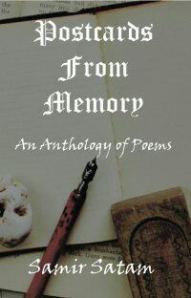
Postcards From Memory


July 21, 2014
A Book Review on Dozakhnama
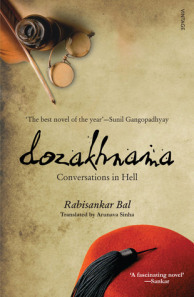
“Death can be endured, but memory cannot.”
As the author prepares the paranormal backdrop for his narrative to spring out of graves at the very start of the book, you get biographies woven together into a single fabric that is free from all hindrances of normalcy. The nomadic narration is the soul of Dozakhnama. Stories start at one point and sprout in various stories. History and Fantasy mingle to create an unique blend of language. But then undoubtedly that’s the language the two legendary literary figures Mirza Ghalib and Manto would have loved to talk to each other in.
When Mirza Ghalib and Manto who are quite apart from each other in life and death by time and distance, meet on the common ground of literature to share their experiences, the ground realities of Indian history chapters like Mughal rule, British invasion, Sepoy mutiny, Partition take shape from the point of view of a poet and a story writer who lived through those times and weren’t much appreciated while they were still living.
Dozakhnama gives us tales of tortured souls told in an innovative way. Though originally written in Bengali by Rabisankar Bal and translated in English by Arunava Sinha, the effect of the original seems to have come through. I cannot know how effective the original must have been due to my language barrier but the English translation doesn’t seem lost in what it wants to convey. Garnished with witty lines and Ghalib’s poetry, Dozakhnama is a one of those books that you come across only once in a while. Personally I think Indian and Pakistani readers will be able to relate to Dozakhnama in a better way than readers from other countries because of the shared culture and history. Having said that Dozakhnama is still a journey worth taking.
“He who cannot leave his home and go out on the road will never find happiness.”


July 12, 2014
Photographer
Each time he found a frame, he would think, ‘This is it, my shot of the day’ but then it wouldn’t be enough. His hunger of his mind kept increasing to match up with the camera’s thirst. Both couldn’t get their fill.They gobbled up all they could, the colors or the lack of them, ripples of the ocean, rough texture of roads, intoxicated lights as night came along. Then he realized, he hadn’t eaten and that just like his camera, he had a stomach to fill too. In one corner was a little stall manned by a teen age boy, crowded by people of all ages and genders. The boy was selling wadaa paav (spicy fried potato balls stuffed in buns). The photographer pointed his camera, zoomed on the eatables being handed over and let the camera savor the piping hot wada paavs,the delicious smoke that rose from the large iron kadhaai, the oil that bubbled up to give birth to more wadaas. That’s it, he thought and moved on forgetting all about the juices of hunger that continued to fill up his belly. Click Click Click…



June 28, 2014
Postcards From Memory
To get more updates on the best selling book on Amazon, connect with us on Facebook.
https://www.facebook.com/PostcardsFromMemory


June 23, 2014
A Book Review on ‘A strange and Sublime Address’
I had almost abandoned ‘A strange and Sublime Address’ but then decided not to. Soon I realized that the slow paced narrative is actually what the story being told demands to create the idle atmosphere of Calcutta’s summer. Everyone who has spent their share of summer holidays at their maternal uncle’s place will understand where the book is coming from. Almost nothing happens as pages flow and yet a sense of nostalgia is instilled. Amit Chaudhuri brings the little joys and disappointments in a subtle way, never fully exploiting the drama that boils below the surface. The book observes the way a child looks at his elders around him and the way the lifestyle and culture of a place create their impressions on little minds.
The plot or the lack of it takes place over two seasons. The protagonist Sandeep spends his summer vacation at Calcutta at his maternal uncle’s place and then returns again to spend his winter. The way his experiences during these short vacations differ during these two seasons creates the little ripples on an otherwise calm surface of Amit Chaudhuri’s writing.
The main story is followed by short stories which again compose the nostalgia that rises from life in Calcutta. One thing common throughout the book is the author’s successful portrayal of the wonder hidden in ordinary day to day life of everyday people. A Strange and Sublime Address transports the reader to lazy afternoons somewhere in the lost lanes of childhood.
Rating: 3.5 / 5



